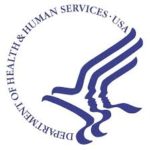The following is the latest health policy news from the federal government for December 1-7. Some of the language used below is taken directly from government documents.
Congress
 While Congress has more than a month before the next federal funding deadline of January 19, committees are working to prepare and pass health care legislation.
While Congress has more than a month before the next federal funding deadline of January 19, committees are working to prepare and pass health care legislation.
- On the House calendar for floor votes next week is H.R. 5378, the Lower Costs, More Transparency Act. This bill would eliminate the pending cuts to Medicaid DSH for two years (those cuts are temporarily suspended through January 19); introduce site-neutral payments for drug administration services performed in off-campus hospital outpatient departments; and impose more reporting requirements on hospitals. The House had planned to vote on this bill in September but it was pulled from the calendar due to lack of support. ASH sent a letter to every member of the House of Representatives about this bill this week; find that letter here.
- In the House this week, the Energy and Commerce Committee passed nearly 20 bills with unanimous support, including bills to restrict pharmacy benefit managers’ practices; increase data transparency for Medicare Advantage plans; and increase Medicare payments under the physician fee schedule, among others. You can view the bills passed this week by the committee here and all 44 bills the committee considered here.
- The Ways and Means Committee continues to work on a broad health care package with a focus on increasing access to health care in rural communities.
- The Senate HELP Committee has passed legislation to dramatically increase health care workforce programs and opportunities to help address a vast shortage of doctors, nurses, and other health care professionals. The committee also is pursuing bills on maternal health, behavioral health, and site-neutral payments for hospital outpatient departments.
- The Senate Finance Committee is also working on legislation to increase the health care workforce with a focus on mental health services; reduce prescription drug costs; and eliminate the pending Medicaid DSH cuts through 2025.
While the House is scheduled to take up H.R. 5378 next week, it is unlikely that other health care legislation will advance before early 2024.
 ASH Advocacy
ASH Advocacy
In response to proposals in H.R. 5378, the Lower Costs, More Transparency Act, ASH has written to members of the House urging them to delay for two years $16 billion in cuts to states’ Medicaid disproportionate share allotments because Medicaid DSH payments are so essential to the ability of community safety-net hospitals to serve their communities. ASH also asked House members to reject site-neutral Medicare payments for services provided in hospital outpatient departments because of how important those payments are in enabling community safety-net hospitals to establish and operate clinics in medically underserved areas. The House is expected to consider H.R. 5378 next week. Learn more about the reasoning behind ASH’s positions on these issues from its message to members of the House of Representatives.
Centers for Medicare & Medicaid Services
- CMS has announced that it will penalize states that fail to comply with federal standards for redetermining the eligibility of individuals who were enrolled in their Medicaid programs during the COVID-19 emergency. Under a new interim final rule, states that fail to report on their Medicaid eligibility efforts, do not submit corrective plans in response to problems CMS identifies, or fail to comply with current requirements will face penalties that include civil penalties and reductions in the rate at which the federal government matches state Medicaid expenditures. The new regulation took effect on December 6. Learn more from this CMS announcement, which includes a link to the Federal Register notice. Stakeholders have until February 2 to submit comments, after which CMS may choose to revise the new rule.
- CMS has published an infographic that explains how ICD-10-CM Z codes can help improve the collection of social determinants of health data and outlines ways that the collection of such data can improve equity in health care delivery and research. Find the infographic here.
- The new CMS report “Rural-Urban Disparities in Health Care in Medicare” summarizes the quality of health care delivered to Medicare enrollees nationwide, highlighting rural-urban differences in health care experiences. The report examines differences in quality of care by race and ethnicity in rural and urban areas. Find it here.
- CMS has posted updated data that lists and explains quality benchmarks used to assess performance in the quality performance category for the 2023 performance period. To find the data go here, scroll down to “Full Resource Library,” and click the link for “2023 Quality Benchmarks” for the downloadable zip file.
- CMS has issued subregulatory guidance to state Medicaid and CHIP programs about the Mandatory Medicaid and Children’s Health Insurance Program Core Set Reporting final rule it issued in August. This letter details the requirements and expectations for compliance with mandatory annual state reporting of the Core Set of Children’s Health Care Quality Measures for Medicaid and CHIP and the behavioral health measures on the Core Set of Adult Health Care Quality Measures for Medicaid. This letter provides guidance and outlines CMS’s expectations for the submission of states’ quality measure data beginning with federal FY 2024 reporting, delineating mandatory reporting regulations and adherence to reporting guidance, populations and the population exemption process, stratification categories, attribution rules, and state plan amendments. In addition to instructing state Medicaid and CHIP programs, the letter offers providers a look at the data their state programs may be seeking from them. Find the letter here.
 Department of Health and Human Services
Department of Health and Human Services
- HHS has published a concept paper outlining its planned cybersecurity strategy for the health care sector. The paper is built on four areas for action:
- Establishing voluntary cybersecurity performance goals for the health care sector.
- Providing resources to create incentives for the implementation of these cybersecurity practices, including an upfront investments program to help high-need health care providers, such as “low-resourced hospitals,” cover the upfront costs associated with implementing public health sector-specific cybersecurity performance goals and an incentive program to encourage all hospitals to invest in advanced cybersecurity practices to implement enhanced public health sector-specific cybersecurity performance goals.
- Implementing an HHS-wide strategy to support greater enforcement and accountability, including proposed new cybersecurity requirements for hospitals through Medicare and Medicaid and updating the HIPAA security rule to include new cybersecurity requirements.
- Expanding and enhancing the one-stop shop within HHS for health care sector cybersecurity.
HHS anticipates implementing this plan by working with Congress to obtain new authority and funding both to administer financial support for domestic hospital investments in cybersecurity and to enforce new cybersecurity requirements through the imposition of financial consequences for hospitals that would be established in new regulations. Learn more about HHS’s intentions and plans from its concept paper “Healthcare Sector Cybersecurity: Introduction to the Strategy of the U.S. Department of Health and Human Services” and from this HHS news release.
- HHS’s Administration for Strategic Preparedness & Response has posted a risk identification and site criticality risk toolkit: an objective, data-driven all-hazards risk assessment that can be used by public and private organizations within the health care and public health sectors to inform emergency preparedness planning, risk management activities, and resource investments. Find the toolkit here.
- HHS’s Office of the Inspector General has sent its mandated semi-annual report to Congress describing the office’s work identifying significant risks, problems, abuses, deficiencies, remedies, and investigative outcomes involving the administration of HHS programs and operations that were disclosed during the reporting period from April 1 through September 30, 2023. Go here for an introduction to the report and links to a news release and the full report itself.
HHS Newsletters
- CMS – MLN Connects – December 7
- AHRQ News Now – December 5
- HRSA eNews – December 7
Office of Management and Budget
OMB has posted its fall 2023 agenda of regulatory and deregulatory actions: a collection of the actions federal agencies plan to issue in the near and long term. Among the items listed in this agenda are regulations involving the 340B program, the federal Independent Dispute Resolution process fee schedule, possible changes of the HIPAA security rule, the use of telemedicine to prescribe controlled substances, and more. Find the OMB’s fall 2023 regulatory agenda here.
 Government Accountability Office
Government Accountability Office
The GAO examines how changes CMS plans to implement in 2025 in its bundled payment for dialysis and most end-stage renal disease-related treatment under Medicare’s traditional fee-for-service program could affect the providers of these services in its new report “End-Stage Renal Disease: CMS Plans for Including Phosphate Binders in the Bundled Payment.”
Stakeholder Events
CMS – Town Hall Meeting on FY 2025 Applications for New Medical Services and Technologies Add-On Payments – December 13-14
CMS will hold a virtual town hall meeting on Wednesday, December 13 and Thursday, December 14 during which organizations representing hospitals, physicians, manufacturers, and other interested parties may present comments, recommendations, and data to CMS’s clinical staff about whether individual services or technologies represents a substantial clinical improvement. The meeting will include a discussion of the substantial clinical improvement criteria for the FY 2025 applications for new technology add-on payments. Learn more about the meeting, why it is being held, what it will address, and how to participate from this CMS notice.
MACPAC – December 14-15
The Medicaid and CHIP Payment and Access Commission will hold its next public meeting on Thursday, December 14 and Friday, December 15. The meeting’s agenda and information about how to participate virtually have not yet been released but when they are they will be posted here.
CMS – Hospital Price Transparency Webinar – January 17
To help hospitals prepare for meeting new requirements for price transparency, CMS will hold a webinar on Wednesday, January 17 at 2:00 (eastern) to review the new requirements; to present examples of how to encode machine-readable file standard charge information in the template layout CMS will require hospitals to use; and to demonstrate its “GitHub” repository. Go here to register to participate.
CMS – Health Equity Conference – May 29-30
CMS will hold its second annual CMS Health Equity Conference on Wednesday, May 29 and Thursday, May 30. The free, hybrid conference will be held in person in Bethesda, Maryland and available online for virtual participation and involve health equity leaders from federal and local agencies, health provider organizations, academia, community-based organizations, and others. Conference participants will hear from CMS leadership on recent developments and updates to CMS programs; explore the latest health equity research; discuss promising practices and creative solutions; and collaborate on community engagement strategies. Learn more from the conference web page.

